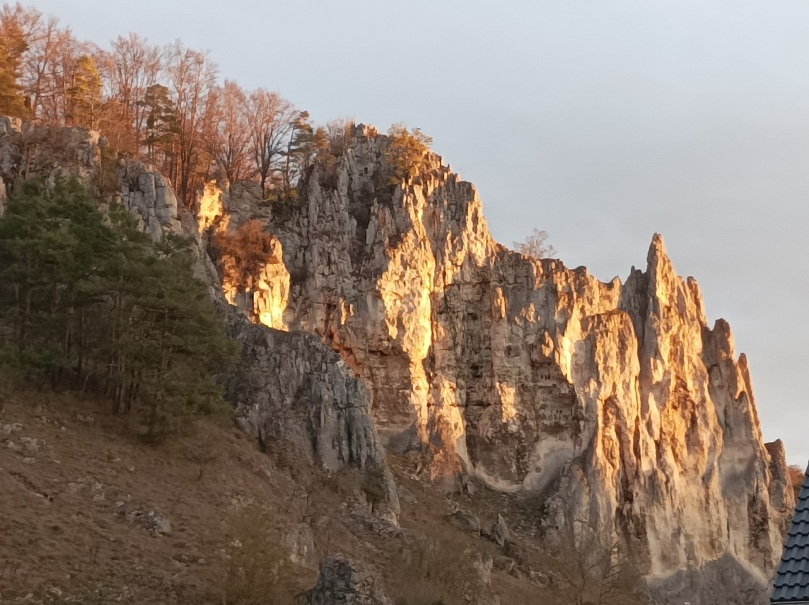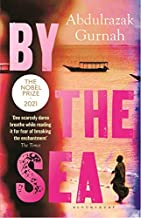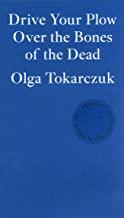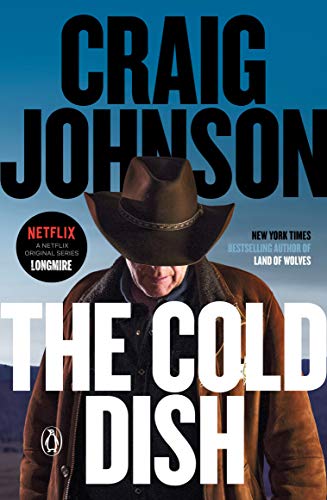In January and February, I spent about three or four weeks rereading Thomas Mann’s The Magic Mountain (in German, because that’s my native language). It was a reread, because I read it ages ago in my late teens or early twenties, when I had a Thomas Mann phase. I really didn’t like it then. It was way above my head at the time. I used to place a lot of importance on plot in my earlier reading years, more than I do now. Let’s face it, The Magic Mountain has next to no plot but oodles of complex discussions about culture and politics and whatnot.

This year I wanted to reread it, because I found out that 2024 is the 100th year anniversary of the book’s first publication. That little factoid gave me the first push to see if I would change my opinion about it if I read it again. Then I learned, through a short snippet on TV, that Olga Tokarczuk has written a novel called The Empusion that engages with The Magic Mountain in some way. Now, last year Tokarczuk’s Drive Your Plow Over the Bones of the Dead was one of my favourite reads. So I thought I’d make a project of reading both books and seeing how they interconnect. And I decided I’d better start on the Zauberberg early in the year, fresh from my vacation. Which I did.
Well, I enjoyed The Magic Mountain a lot more than I did all those years ago, but it probably will never be one of my favourites. I read it slowly (it’s not a book for rushing through) and felt that I understood a lot more. It’s stuck in my mind, mostly because I keep wondering how its themes relate to World War I – the book is set in the decade before the war and ends right as it starts.
It’s about a young man, Hans Castorp, who travels from his home in Hamburg to visit his cousin Joachim, who is staying at a sanatorium in the Swiss Alps. Hans is a well-to-do orphan who’s just looking for a bit of a holiday before starting an internship (or maybe his first job) at a wharf after having gained his engineering degree. But then he is seduced into staying at the sanatorium himself for the following years (an incredible number of years, even after his cousin leaves).
An x-ray of Hans’ torso shows a few indistinct splotches that could be interpreted as tuberculosis or some other unspecific disease that needs the mountain air to be cured. However, it’s really that Hans has decided that the way of life at the sanatorium is very much to his liking – it’s all sleeping, resting, taking relaxing walks and eating five full meals a day. Reading, talking, listening to concerts every now and again. Maybe a leisurely excursion into the surrounding countryside. It’s a very seductive atmosphere (if you can afford it) and Hans is not really ill, so he can enjoy it. He feels freed from his familial and other obligations. The serious nature of some of the patients’ conditions is kept discreetly hidden, although at one point in the book Hans likes to visit the dying because it makes him feel elevated in some way (he can be a bit of a prick).
The other thing that keeps him on the mountain is an infatuation with a married woman, Clawdia Chauchat, who is taking the cure without her husband (conveniently far away in Kyrgyzstan) and who reminds him of an earlier schoolboy crush on a young lad who resembled her.
At the sanatorium, Hans soon becomes friends with and is mentored by one Ludovico Settembrini, an Italian scholar, author, and passionate proponent of Enlightenment values. And later still he is brought, via Settembrini (much to his chargin), into the circle of Leo Naphta, an ex-Jew Jesuit who embraces totalitarian Marxist views. Settembrini and Naphta are antagonists with each trying to pull Hans over to his side. Hans, however, stays friends with both and has his doubts about each of their ideologies. Their enmity eventually comes to a dramatic climax.
Towards the end of the novel, Hans is also introduced to a rich Dutchman, Peeperkorn, from the colonies, who suffers from bouts of malaria and who seems to want to celebrate all life’s joys while also keeping everyone on their toes due to his violent fits of temper. He is Clawdia’s new lover and therefore Hans’ rival.
The book is like a Bildungsroman (a coming-of-age novel), with a young man being introduced to the arts, culture, and politics, as well as sex (in theory?) and love. However, from the first, Hans, despite being an agreeable people-pleaser, keeps his own counsel and private opinions and only adopt his mentors views as far as suits him. He’s finished a degree in engineering, he’s not totally unformed. He’s quite stubborn, too. It seems that he isn’t transformed very much at all by his contact with his mentors and his involvement in their endless discussion about everything and nothing. All the new knowledge also doesn’t help him at the end, when he is forced to leave his magic mountain retreat at the beginning of WWI when the novel ends.
Anyway, before the end, the mountain has already lost much of its allure. It seems that the inhabitants of the sanatorium become jaded with their superficially pleasant lives, more aware of their mortality, and they succumb to strange obsessions and bad temper (including violence). Even Hans seems just to stay on because of inertia and not wanting to leave his friend, Settembrini. Although, inevitably, driven by the forces of the times, he must leave.
Near the midpoint of the novel, Hans embarks on a somewhat dangerous adventure during which he falls into an exhausted sleep for some minutes and has a dream in which he has a revelation. Sadly, he forgets this revelation once he returns to his life at the sanatorium. Is enlightenment only possible in dreams?
Above I said that The Magic Mountain will probably never be one of my favourites. Why probably? Somehow, I can’t quite make up my mind about the novel. I didn’t enjoy reading it all that much (although I didn’t hate it either), but afterwards it stuck with me. I keep thinking about it. It’s fascinating. I may have to reread it again in 10 years or so.
What I really didn’t like was that the novel doesn’t have any well-fleshed out women characters at all. The female patients at the sanatorium are all either stupid or superficial (or both). The only strong character is Hans’ cousin’s mother, but she has a very small appearance. There’s Clawdia, but she’s mostly an object for Hans to moon over (and isn’t even in the story for half the time). So, I’m really hoping that Olga Tokarczuk’s novel The Empusion will differ in that respect. Tokarczuk is a Polish writer (a winner of the Nobel Prize in Literature) and The Empusion is available in a German translation. But as I enjoyed the English translation of Drive Your Plow… so much, I’m holding out for the English translation, which is supposed to come out in September. According to Amazon it’s “A Health Resort Horror Story”. Sounds intriguing!



